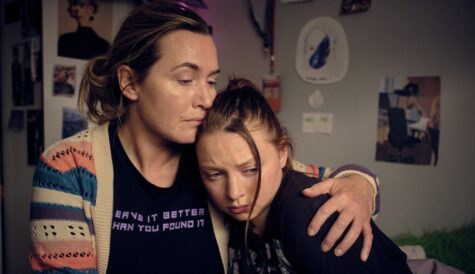
After more than 35 years of operation, TBI is closing its doors and our website will no longer be updated daily. Thank you for all of your support.
Ukraine One Year On: Alla Lypovetska, founder of ‘9 Lives’ firm Mamas Film Production
Twelve months since the Russian invasion, TBI talks to Ukrainian media organisations about how they have kept cameras rolling in a country in the midst of conflict.
Running all through this week, we’ll be publishing extended interviews from our recent article on Ukrainain production (which you can read here).
Here, TBI speaks to Alla Lypovetska, founder and producer for Mamas Film Production and co-founder of the Organisation of Ukrainian Producers.
Prior to founding her own production company, Lypovetska worked as a general producer of the Ukraina TV channel and later held the same position at FILM.UA Television.
What have been your main challenges to production in the past 12 months?
The last year was the worst year of our lives. We, like everyone else, were not prepared for this turn of history. Our industry also found itself in conditions that no one could have anticipated. We had seen films about the Second World War, but never imagined that we would be part of such events.
For the first few months it seemed that it was all a film, albeit a scary one, and there would be a finale and credits soon. Our first steps towards overcoming our general confusion were the creation of the Organisation of Ukrainian Producers (OUP) and the decision to make documentaries about our war. We made the decision to shoot with our own money and it was important for us, it was our volunteer project. The difficulties that arose were the creation of creative teams who could shoot in a war situation, the organisation of technological processes. Everything slowed down a lot. In peacetime, many issues took hours to resolve, but in the new circumstances it took days and weeks.
What have you done to overcome these challenges to continue or return to production?
We set up three teams to make our films, two making documentaries and one making a full-length feature. Our projects were shot simultaneously in Ukraine, Germany, Sweden and Poland. A number of our colleagues were not in Kyiv and it complicated the process. But the general desire to keep shooting was very stimulating for the team. We were shooting a film about refugees and volunteers in Berlin, a film about the rescue of animals in Ukraine, even in the hot spots, and in parallel, there was a pre-production of a feature film, with a script written in two months. At the same time, we were looking for additional funding for the projects, which was time-consuming.
What do you expect the upcoming months to look like for you and your company?
[At the time of writing] we have the final post-production processes of the feature film Stay Online, preparing for the Ukrainian premiere on the cinema network. Our documentaries 9 Lives and HopeBahnhof. Berlin have been acquired by more than 20 countries. New documentary projects are in development and we are constantly looking for project funding.
What support have you received from the wider international TV industry?
The first year of the war gave us a unique new experience, new connections, contacts all over the world. We took part in two international festivals – Festival de la Fiction (La Rochelle, France) and Serial Killer (Brno, Czech Republic) – with the series Picnic, the last pre-war project of Mamas Film Production. We were shortlisted at the Festival de la Fiction and won the Grand Prix at Serial Killer. We have a European distributor, Beta Film. And our new project, the feature film Stay Online, has also found an international distributor.
How best can the global industry support Ukrainian productions in the months ahead?
Now more than ever, we need the support of the global industry. Co-production projects are our closest real opportunities. We are ready for this kind of cooperation and can be of interest and use to European colleagues.





